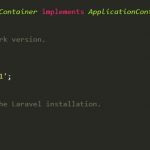Logic errors are one of the most frustrating and difficult bugs to fix in a program. They often cause the programmer to feel like they’re hitting their head against a brick wall, as logic errors can be hard to find and validate. Logic errors typically occur when there’s an inconsistency in the way that data is stored or used by different parts of a program. When you think about how complex programs can be, it’s not surprising that logic errors exist!
Logic errors are caused by mistakes or inaccuracies in the programming code. Errors could cause incorrect behavior, produce different output than expected, or make a program fail and shut down. We often see the crash notice if a program fails while running.
Various programming mistakes can cause logic errors. For instance, defining a variable to wrong values may cause errors in your program. A small typo that does not produce a syntax error may cause a logic error instead.
In the Python example below, logic error might happen because the single equal sign (=) was used instead of a double equivalence sign (==).
#Wrong statement
if a = 5:
print('a is 5')
#Correct statement
if a == 5:
print('a is 5')In the example above, instead of compare 2 values with “==” operator, the code uses assigning operator “=”.
Logic errors are not always easy to identify right away. For this reason, they can be tricky and misleading! This is because while a logic error may seem valid in the language it was written with, if that message never reached its intended destination then there’s no point of having such an erroneous statement at all.





